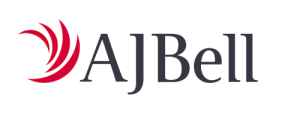- The F&C Investment Trust’s private equity portfolio opens up an opportunity typically beyond the reach of individual investors
- Over the long term, the portfolio has added to the trust’s returns
- There are good opportunities to invest in mid-sized, fast-growing companies.
In the world of investing, a quiet transformation is underway. For many years, there has been a line between investing in public stock markets and private companies. But now it is blurring.
Historically, large institutional investors like pension funds have bought into high-growth private companies with a small part of their portfolios, seeking to gain higher returns and to spread portfolio risks. Increasingly, though, individual investors can do so, often through so-called private equity funds.
It’s an opportunity that F&C has been making available to its shareholders for years. Over time, F&C’s investments in private mid-sized, high-growth companies have enhanced shareholders’ returns, complementing those from investments in shares across the world’s stock exchanges.
At the time of writing, about a tenth of the trust is invested in private equity,[1] more specifically a carefully selected group of small, growing companies that you don’t necessarily find on public stock markets. In other words, private equity offers something different.
This is in the spirit of F&C’s approach to spreading risk. By taking a diversified approach, F&C aims to smooth returns for investors, with the objective of securing growth in both capital and income over the long term.
What is private equity?
While private equity may become a more familiar term in years to come, for now it needs explaining. To understand what private equity is, just remember that once a company lists on a stock exchange, like the London Stock Exchange, it’s regarded as a public company. By contrast, a private company is not listed, and private equity is the business of investing in private companies.
From its beginnings in the United States in the 1980s, the private equity industry has expanded quickly. A 1989 book called Barbarians at the Gate popularised its early days, chronicling a leveraged buyout of tobacco-to-food conglomerate RJR Nabisco. Over the last 20 years, assets under management have ballooned from $700bn in 2005 to $6tn today, according to data from Pitchbook.[2]
Illustrating private equity’s track record of producing superior investment returns, the British Venture Capital Association estimates that over 10 years to the end of 2024, UK private equity funds generated a return on your money of 15.2% on average each year. While past performance is no guide to the future, that’s far better than UK shares. As represented by the broad-based FTSE All Share index, they made 6.2%.[3]
But an average is just that. As an individual investor, your returns vary depending on the type of private equity and the specific funds or businesses you invest in. There are three types of private equity – management buyouts, growth equity and venture capital – that generate varying performance. F&C invests in growth equity and venture capital: the former describes established businesses growing fast and the latter younger businesses with the potential for rapid growth.
Drilling down
The trust’s private equity portfolio has performed relatively well recently. It delivered a return of 9.7% in 2024. Over the longer term, the portfolio has delivered excess returns for the trust.
Cumulative Performance(%) as at 30.06.25 | 1 month | YTD | 1 year | 3 years | 5 years |
|---|---|---|---|---|---|
NAV | 2.69 | 0.81 | 7.49 | 42.03 | 76.65 |
Share price | 2.40 | 0.80 | 10.74 | 43.25 | 75.19 |
Benchmark | 2.78 | 0.77 | 7.37 | 43.03 | 70.89 |
Source: Lipper. Basis: share price, percentage growth, bid to bid, net income reinvested. Basis in accordance to the regulations of the Financial Conduct Authority. The discrete annual performance table refers to 12 month periods, ending at the date shown. The cumulative performance table refers to cumulative periods ending 30.06.2025.
Broadly speaking, the private equity portfolio focuses on mid-sized businesses with attractive valuations and strong cashflows. As is the nature of private equity, the investments tend to be long term, giving enough time for a business’s value to increase.
There is always a plan to grow the business and increase its value. After a period of years, the trust’s stake is sold, ideally for more than the purchase price.
Take Jollyes, a pet supply retailer, that F&C exited in 2024 for £29.9m following an investment lasting several years. It made 3.7 times its initial investment and an internal rate of return (IRR) of 27%. IRR is a private equity industry term used to describe an investment’s annual return.
To be fair, not all of the year’s exits were quite so profitable. For example, F&C also sold a holding in NEM Impresse, an Italian private equity investment, for 1.3 times the original investment. Even so, that still delivered an IRR of 7%.
Additionally, F&C invests selectively in specialist private equity funds to gain access to the expertise of particular private equity investment managers around the world.
Outlook
Looking to the longer term, there will continue to be good opportunities for just as long as there are growing mid-market companies valued at attractive prices. Encouragingly, there are some signs that growing confidence is creating a better environment for exiting private equity investments, which if it continues should help to lift returns.
Even so, private equity investing is not for amateurs. There are challenges around valuing companies accurately, the illiquidity of investments and generally the broader market risks. That’s why it can be attractive for investors to access the private equity opportunity within an actively managed fund.
F&C’s private equity portfolio invests seeks to invest in companies that appear to have high potential and add valuable diversification of risk, further solidifying F&C’s foundations. Even with private equity beginning to open up to a wider range of investors, F&C offers an opportunity that typically remains beyond the reach of most individuals.
[1] 10.3% at the 2024 year end.
[2] Private equity can defy the gloom narrative. ft.com. July 5, 2025.
[3] BVCA Performance Measurement Survey 2024. Published June 2025.
Important Information
Your capital is at risk. Past performance is not a reliable indicator of future results. The mention of any stocks and bonds is not a recommendation to deal.
This communication is valid at the date of publication and may be subject to change without notice.
Issued by Columbia Threadneedle Management Limited, No. 517895, registered in England and Wales and authorised and regulated in the UK by the Financial Conduct Authority. Approved as at 07/08/2025.










